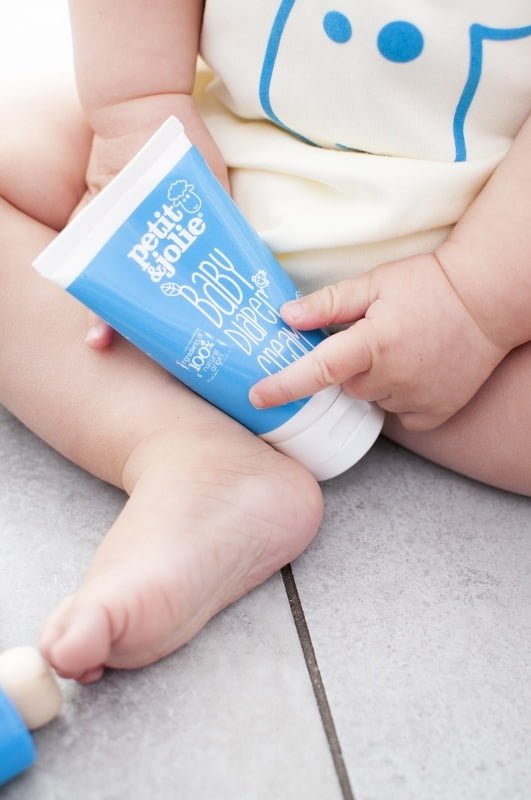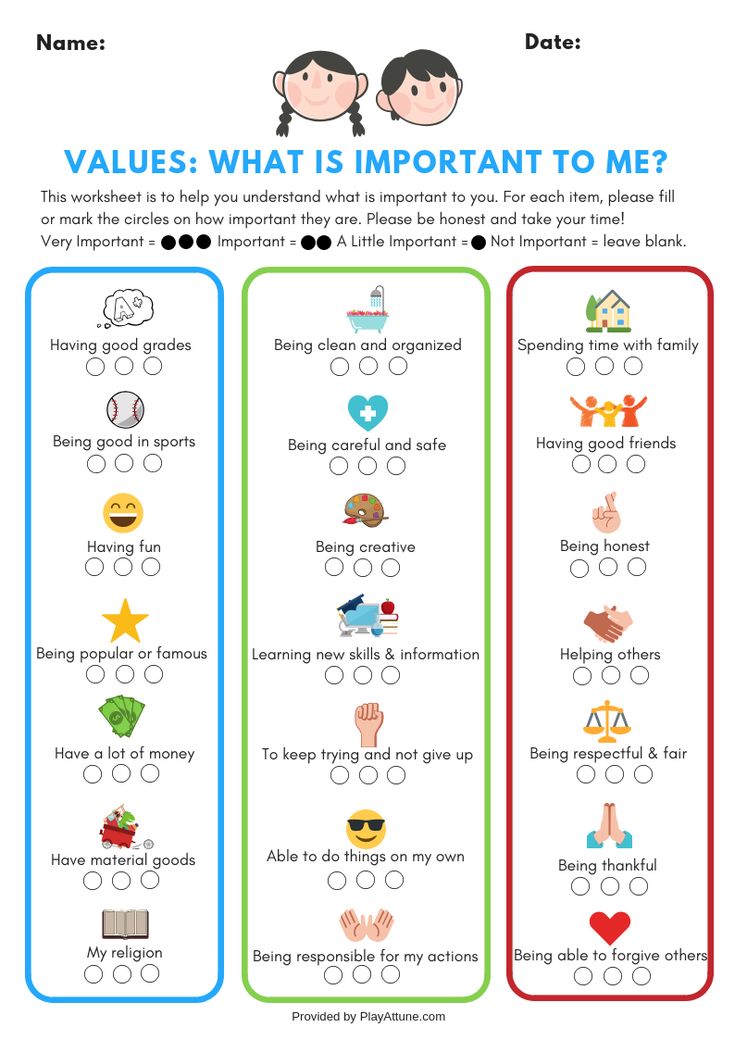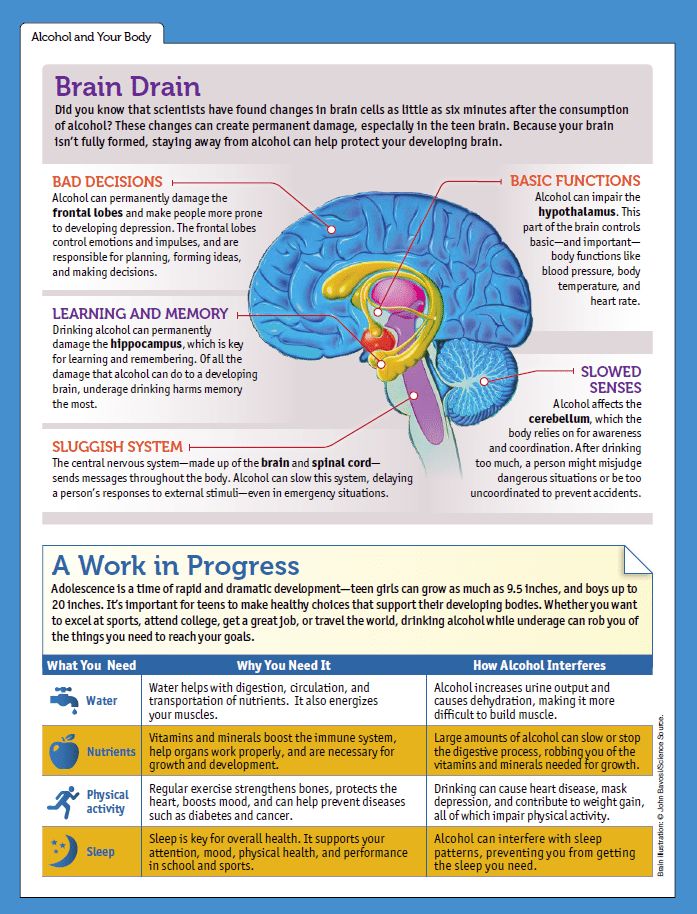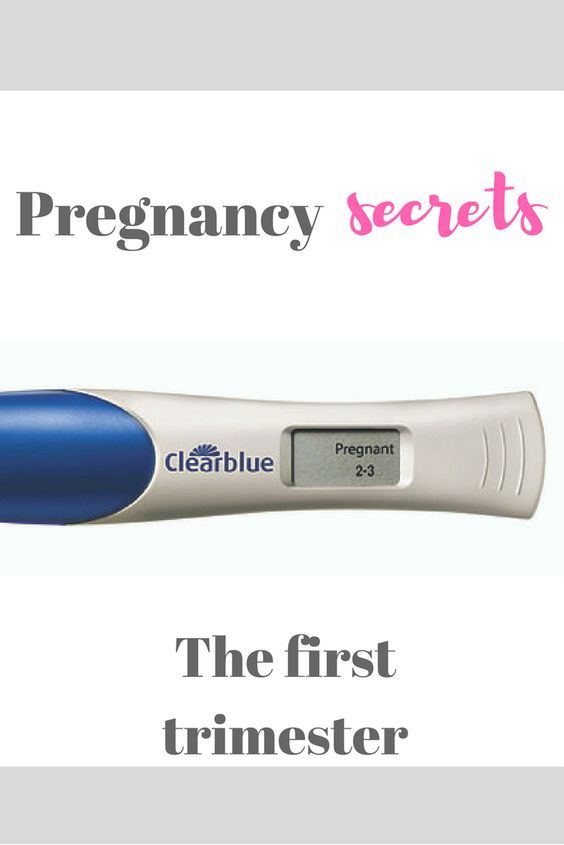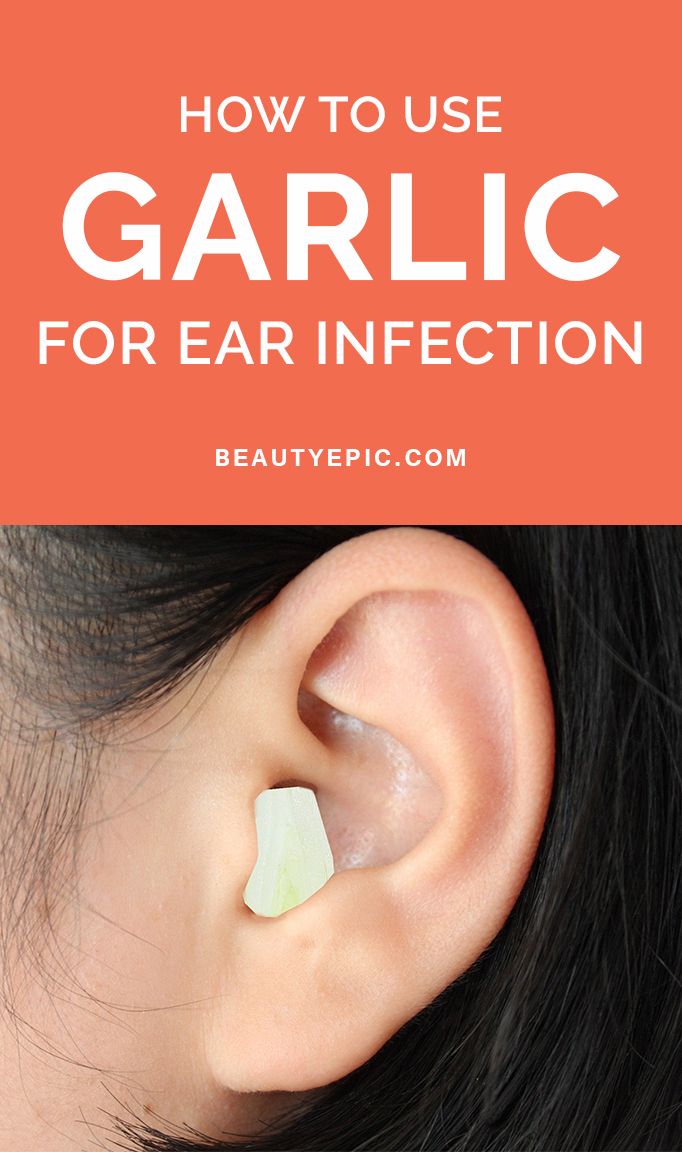Can gripe water help with constipation
Everything You Need to Know
It’s normal for babies to deal with gas and stomach issues, but that doesn’t make it any easier on them—or you. When your little one is uncomfortable, you want to find relief for them, and fast. Many parents will reach for gripe water to help—but what is gripe water, exactly, and how does it work? Here’s what you need to know about using gripe water for babies.
In this article:
What is gripe water?
Gripe water uses
Is gripe water safe?
Does gripe water cause any side effects?
Alternatives to gripe water for babies
Best Gripe Water for Babies
What Is Gripe Water?
Gripe water is a liquid solution that’s designed to help with tummy troubles in infants, says Danelle Fisher, MD, FAAP, a pediatrician and vice chair of pediatrics at Providence Saint John’s Health Center in Santa Monica, California. To administer, you can feed gripe water directly into baby’s mouth using the included dropper or syringe.
Gripe water ingredients vary by brand, but the most common in the US are water and sugar, plus sodium bicarbonate and a botanical mix, such as dill, fennel and ginger, says Patricia Garcia, MD, a pediatrician at Connecticut Children’s Medical Center.
So how does gripe water work? “It’s believed the mixture of sodium bicarbonate with various herbs ultimately settles the stomach and allows for more comfort during a time when a newborn’s digestive system is still immature,” says Ashanti Woods, MD, a pediatrician at Mercy Medical Center in Baltimore.
Garcia agrees: “We know that sugar water is soothing to babies and can help with pain relief. Since sugar is a main ingredient in gripe water, the theory is that the sugar helps soothe pain,” she says. “Sodium bicarbonate (baking soda) is found in some antacids to treat indigestion (for example, Alka Seltzer). …Historically, herbs like ginger, dill and fennel have been used to treat indigestion in many cultures.”
Gripe Water Uses
You’ve gotten the lowdown on how gripe water works—but what issues does it work well for? Gripe water for newborns and babies is thought to help relieve stomach discomfort, make it easier for babies to pass gas, possibly battle constipation and encourage bowel movements and even potentially soothe colic (or excessive crying), Woods says. Some brands also claim their product will help with hiccups, teething and reflux.
Some brands also claim their product will help with hiccups, teething and reflux.
Each brand has a different formulation and different dosage, so it’s important to read the label. Some can be given as early as 2 weeks old, but others require that a baby be at least one month old, Woods says.
Now for the real question: Does gripe water work? To be honest, it’s hard to say. Gripe water hasn’t been extensively researched, but studies that have analyzed it haven’t found much benefit to using it. “There is no evidence to show that gripe water reduces colic,” Garcia says. One study published in the Journal of Clinical & Diagnostic Research had 335 moms answer questions about their gripe water usage and found that it didn’t seem to prevent colic.
There is a “possible” link between gripe water and calming babies’ tummy troubles, Fisher says, “but it’s not a strong association.” Still, some people swear by it. “Many parents report significant improvement in symptoms after using gripe water,” Woods says.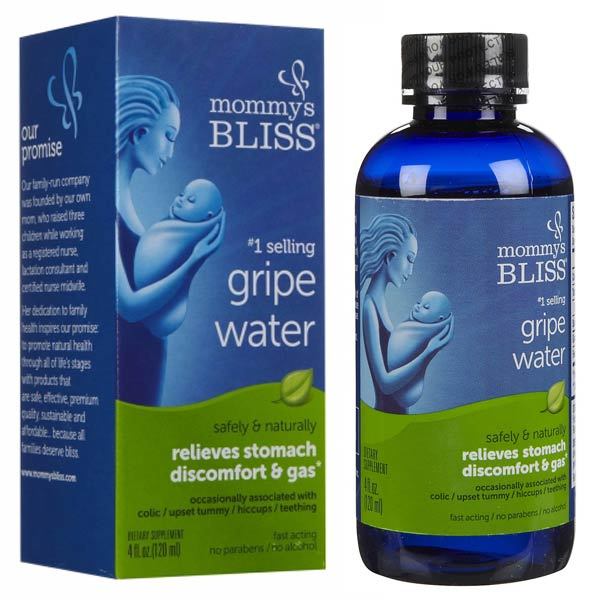
Is Gripe Water Safe?
Gripe water is considered a dietary supplement, and that means it doesn’t require approval from the Food and Drug Administration (FDA) to be sold in the US. However, the FDA sets regulations on which ingredients can and can’t be in gripe water for babies, which manufacturers are expected to comply with. If the FDA discovers that a company is not in compliance, the agency will take action against them. This is why you should only buy gripe water for babies that’s made in the US.
Given that gripe water isn’t FDA-regulated, it’s hard to say that every bottle on store shelves is 100 percent safe. “There have been reports of issues with gripe water being unsafe,” Garcia says, pointing out that one form of gripe water was recalled in early 2019 because a particular ingredient didn’t dissolve properly and posed a choking hazard.
But gripe water for newborns and babies continues to be a popular product. In general, formulations that are alcohol-free and sucrose-free are thought to be safe, Woods says.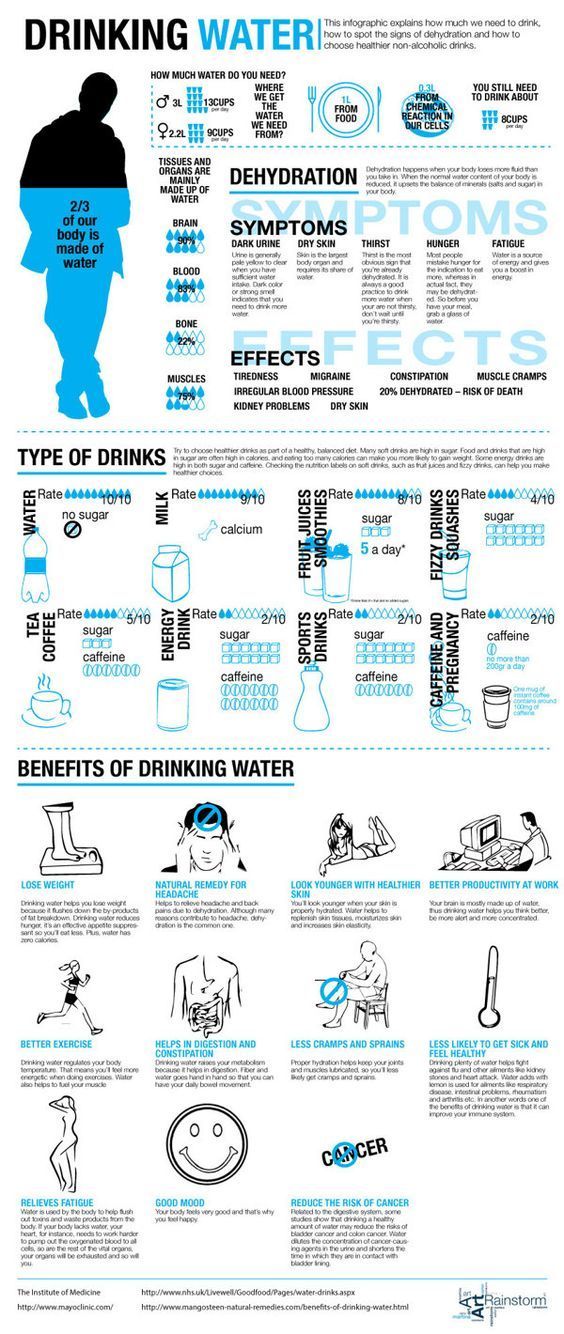 Those that contain charcoal, however, could cause constipation, he says.
Those that contain charcoal, however, could cause constipation, he says.
Does gripe water cause any side effects?
Gripe water side effects are not common, but in rare circumstances babies under one month may experience vomiting, Fisher says. You should also watch for any possible indications of an allergy to gripe water for babies, including diarrhea, hives and itchy skin. If you notice any of these symptoms after giving baby gripe water, call your pediatrician. Of course, any sign of anaphylaxis, such as swelling of the lips or tongue and difficulty swallowing or breathing, warrants immediate medical attention.
Generally speaking, you should avoid giving baby large quantities of any medicine, including gripe water. “While there are very few commonly reported side effects, infants can get used to a sweet taste and may temporarily reject breastmilk or formula,” Woods cautions. Before trying any gripe water for your infant, it’s a good idea to consult baby’s pediatrician.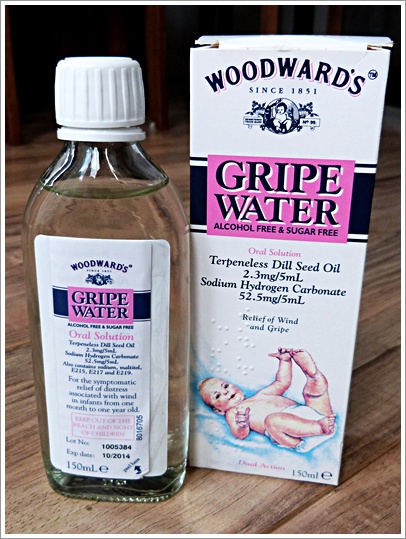
Alternatives to Gripe Water for Babies
Unfortunately, baby can’t verbalize what plagues them during bouts of discomfort—if their belly hurts or they’re experiencing gas pains, you’re left guessing. It can be difficult for parents to distinguish normal cries of hunger from those of distress, but process of elimination can help your detective work. Eventually, you might decide that it’s time to try gripe water. However, if you’re not quite ready to go that route (or if baby has an allergy), there are some gripe water alternatives to consider. Here are a few ways to soothe baby and potentially alleviate tummy troubles without turning to gripe water for babies.
• Bicycle baby’s legs. Garcia suggests laying baby on their back and gently pumping their legs to help expel trapped gas and mollify pesky tummy pains.
• Offer gentle compression. Applying some light pressure to baby’s belly can help work out gas bubbles and provide comfort. Try holding baby tummy-down with your arm supporting their abdomen, or lay baby tummy-down across your knees and rub their back. Similarly, you can lay baby down on their back and gently massage their belly in a circular motion.
Try holding baby tummy-down with your arm supporting their abdomen, or lay baby tummy-down across your knees and rub their back. Similarly, you can lay baby down on their back and gently massage their belly in a circular motion.
• Try a new bottle. It’s possible that your bottle could be the source of discomfort. When baby gulps milk, they can also swallow air, which can lead to gas bubbles. (This is also why it’s important to take frequent breaks for burping.) A bottle with a vent or valve system can cut down on excessive air consumption. Also if baby seems to be chugging too quickly, Garcia recommends trying a nipple with a slower flow.
• Change up baby’s formula. If the problem is pervasive, talk to your pediatrician about changing baby’s formula; as the Cleveland Clinic explains, a milk protein intolerance could be contributing to their discomfort, and switching to a dairy-free formula may help.
• Check baby’s diet. Breastfeeding? You might consider altering your diet to see if baby is bothered by something you regularly eat.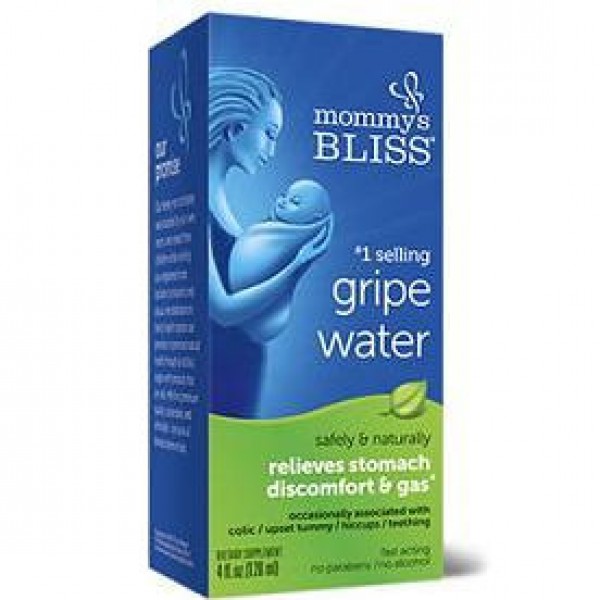 Big on broccoli? Cruciferous vegetables are notorious for causing gas (for you and baby). Just remember to use process of elimination when weeding out potential culprits so you can find the offending foods while maintaining a healthy, balanced diet.
Big on broccoli? Cruciferous vegetables are notorious for causing gas (for you and baby). Just remember to use process of elimination when weeding out potential culprits so you can find the offending foods while maintaining a healthy, balanced diet.
• Move around. When all else fails, get moving. Baby grew accustomed to constant swaying in your uterus—it lulled them to sleep in those confined quarters they enjoyed for nine+ months. To this end, baby may like being rocked in a glider, bassinet or swing, or in your arms. You can also try putting baby in a carrier and walking around the block or pacing the house. (Bonus: you’ll get your steps in!)
• Swaddle up. A good, tight swaddling job can help baby feel snug and secure like they’re back in the womb. You can layer in some additional newborn relaxation techniques, too: put on a white noise machine, offer a pacifier and limit bright lights and stimulation, according to the Cleveland Clinic. The big, bad world can be overwhelming for a tiny new person, but a few creature comforts can keep them calm and quiet.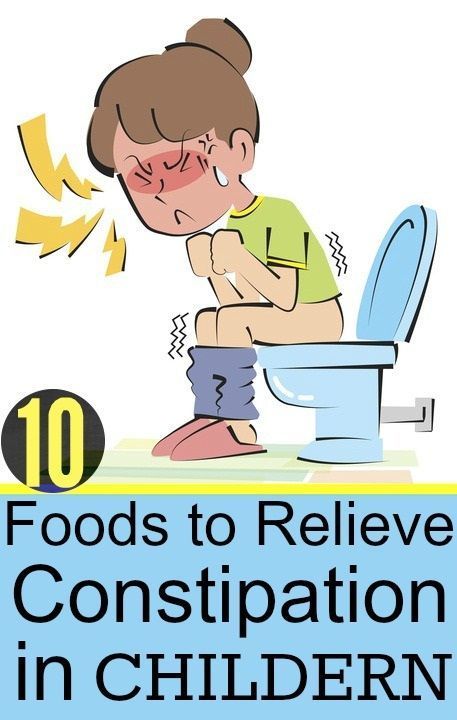
• Give gas drops a whirl. Some parents also try Simethicone gas drops as an alternative to gripe water for babies. According to the Mayo Clinic, this over-the-counter medication works to break down gas bubbles and is generally considered safe. Of course, always consult your child’s pediatrician before giving your little one any medication, and monitor baby for any adverse reactions.
Best Gripe Water for Babies
If you’ve had the chat with your pediatrician and are interested in trying gripe water for baby, read the instructions carefully before offering it to your child, so you know exactly how much to give. Take a minute to also scan the ingredients, in case of an adverse reaction, and avoid formulas containing charcoal, sucrose or alcohol. Again, only purchase gripe water for babies made in the United States.
Here are a few options to check out:
Little Remedies gripe water
Billed as “everything they need. Nothing they don’t,” Little Remedies gripe water for newborns is designed to relieve stomach discomfort from gas, colic and hiccups. It contains water, agave, ginger, potassium sorbate, citric acid and xanthan gum.
It contains water, agave, ginger, potassium sorbate, citric acid and xanthan gum.
Buy it: $9, Amazon.com
Mommy’s Bliss gripe water
This gripe water for newborns 2 weeks and older is free of dyes, alcohol and parabens, and is said to help soothe nausea and discomfort caused by gas, hiccups or colic. It contains vegetable glycerin, citrus bioflavonoid extract, citric acid, sodium bicarbonate, fennel and potassium sorbate.
Buy it: $18, Amazon.com
Wellements organic nighttime gripe water
Free from alcohol and preservatives, this gripe water for babies one month and up promises to help promote “peaceful sleep.” It’s preservative-free and consists of water, agave nectar, lemon juice, glycerin and sodium bicarbonate.
Buy it: $13, Amazon.com
Zarbee’s Naturals gripe water
Zarbee’s gripe water for infants 2 weeks and older contains no artificial flavors, dyes, drugs, alcohol or gluten.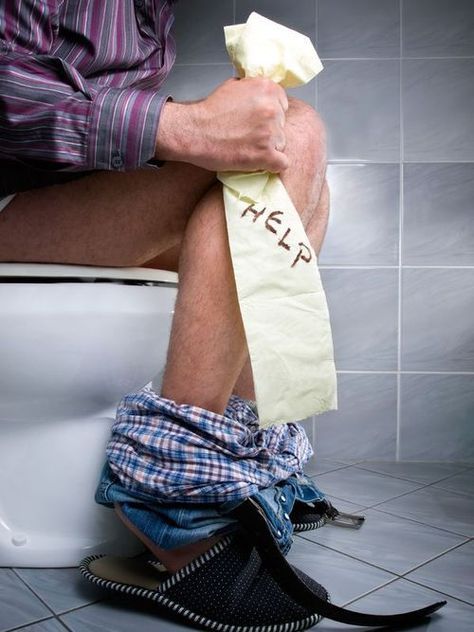 It’s made with water and agave syrup and infused with ginger, chamomile, fennel and lemon balm.
It’s made with water and agave syrup and infused with ginger, chamomile, fennel and lemon balm.
Buy it: starting at $10, Amazon.com
As a caregiver, you can feel powerless seeing baby in discomfort. While the scientific proof is lacking, anecdotal evidence from parents suggests that gripe water might work to ease stomach pain and perhaps even help calm colic. Want to give gripe water for babies a try? Now you can feel informed in your decision-making. Less bellyaching and fewer gripes—that’s the goal.
About the experts.
Danelle Fisher, MD, FAAP, is a pediatrician and vice chair of pediatrics at Providence Saint John’s Health Center in Santa Monica, California. She earned her medical degree at the Albert Einstein College of Medicine of Yeshiva University.
Patricia Garcia, MD, MPH, is a pediatrician at Connecticut Children’s Medical Center and an assistant professor of pediatrics at the University of Connecticut School of Medicine, where she also served as chief resident.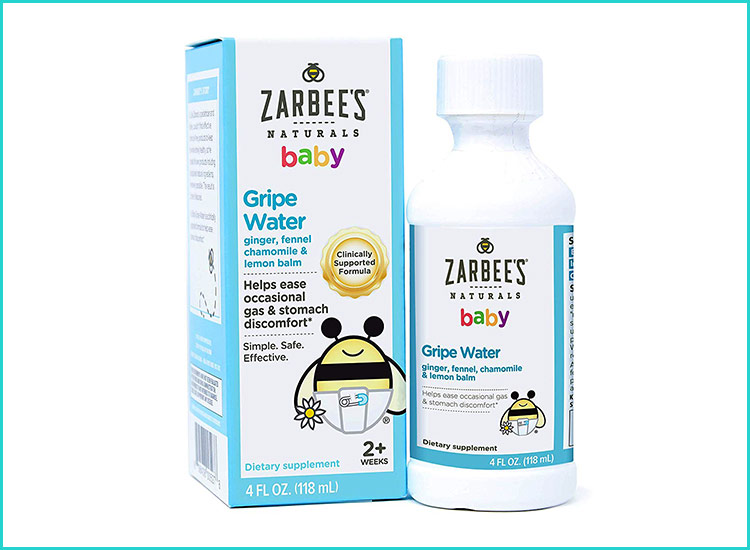 She received her medical degree at Rutgers University in New Jersey.
She received her medical degree at Rutgers University in New Jersey.
Ashanti Woods, MD, is a pediatrician at Mercy Family Care Physicians in Baltimore, Maryland. He received his medical degree from Howard University College of Medicine in Washington D.C.
Please note: The Bump and the materials and information it contains are not intended to, and do not constitute, medical or other health advice or diagnosis and should not be used as such. You should always consult with a qualified physician or health professional about your specific circumstances.
Plus, more from the Bump:
Colic 101: How to Help Soothe Your Colicky Baby
Why Babies Get Hiccups (and How to Get Rid of Them)
11 Reasons Why Babies Cry—And How to Soothe Their Tears
Gripe water for babies: Ingredients, safety, and more
Gripe water is a popular herbal remedy for colic in babies that's been around since the 1800s. Modern gripe waters include ingredients such as ginger root, fennel seed extract, and sodium bicarbonate.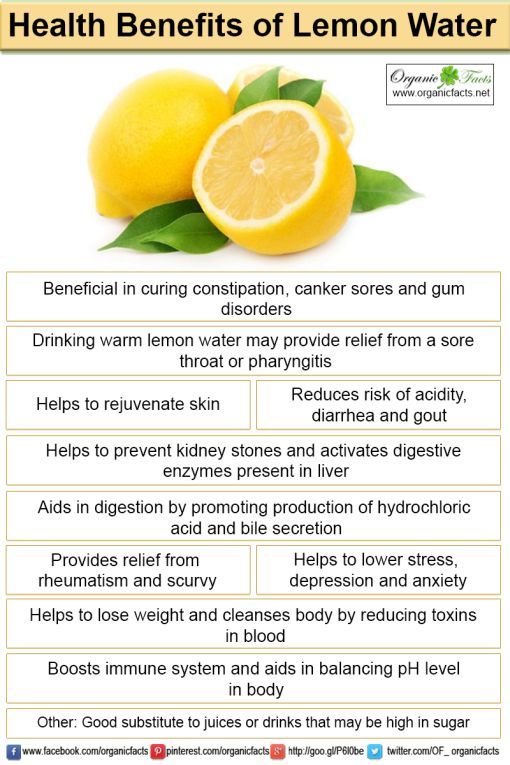 While many parents use gripe water to soothe fussy babies, there's no evidence that it helps with colic, and it might cause constipation and vomiting. Probiotics and dietary changes are a safer and more effective way to relieve colic.
While many parents use gripe water to soothe fussy babies, there's no evidence that it helps with colic, and it might cause constipation and vomiting. Probiotics and dietary changes are a safer and more effective way to relieve colic.
What is gripe water?
Gripe water is an herbal liquid that's meant to soothe baby gas, colic, hiccups, and fussiness. The original recipe for gripe water comes from doctors in Nottingham, England. In the 1800s, they used a mixture of dill seed oil, sodium bicarbonate, alcohol, and other substances to treat symptoms of malaria in children.
A pharmacist named William Woodward discovered that the concoction seemed to relieve gastrointestinal upset in infants. He may have taken the name "gripe" from "watery gripes," which is what doctors called upset stomach at the time.
Today, gripe water is a popular remedy for colic. Having a baby with who cries inconsolably day and night can make parents desperate for solutions – and sleep. Parents around the world use gripe water to soothe their fussy babies, even though there's no research to show that it works.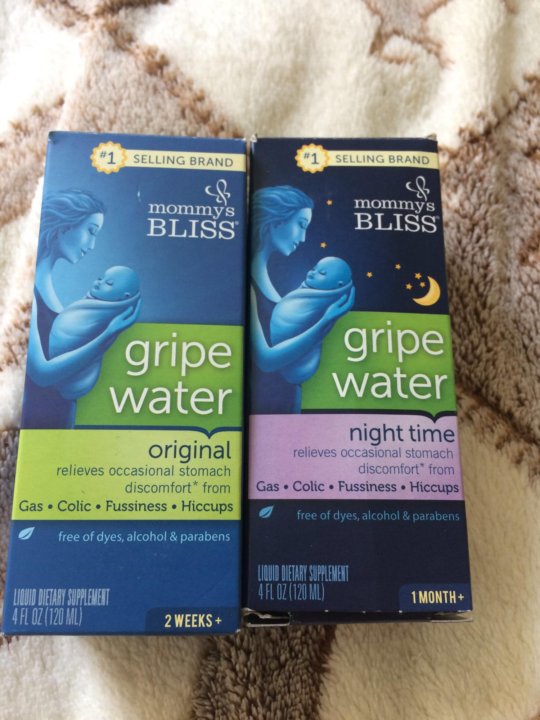
What does gripe water do?
It's not clear that gripe water does anything to help babies, since it's not a proven remedy. Because it's sold as a dietary supplement, not a medicine, gripe water isn't regulated by the U.S. Food and Drug Administration.
Babies with colic cry or fuss without an obvious reason. Doctors don't know exactly what causes colic, but they believe the fussiness stems from digestive problems like gas or extra sensitivity to formula or breast milk.
At first, doctors assumed that any relief babies got from gripe water came from the high alcohol content. In the past, some formulations contained as much as 9 percent alcohol. Gripe water was so boozy that some parents became hooked on the stuff.
Thankfully, gripe waters on the market today don't include alcohol. They contain a variety of herbs and often the antacid sodium bicarbonate (baking soda). Because acidity hasn't been shown to cause colic, it probably doesn't help much. But the dill in some formulations may help to relieve gas and belly pain (one study found that dill essential oil helped post-c-section moms with gas and intestinal pain).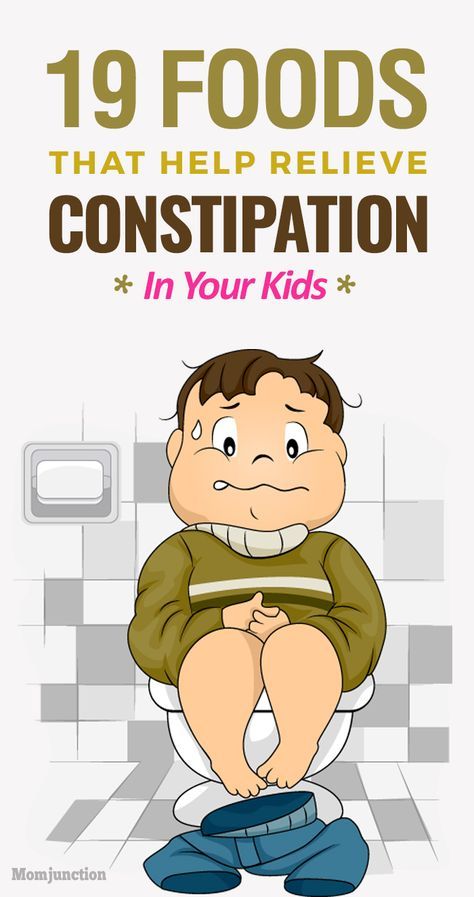
Most of the effects of gripe water seem to come from its sweetness, which babies find soothing. (In studies, sugar water made colicky infants less fussy.) Today's gripe waters don't usually contain sugar, but may contain sweeteners like agave. Also, some of the herbs in gripe water (like fennel) are naturally sweet.
Gripe water ingredients
Ingredients vary based on the brand you buy, but usually include water, baking soda, and a variety of herbs. Some gripe waters also contain sweeteners. Here's what you're likely to find:
- Ginger root extract
- Fennel seed extract
- Sodium bicarbonate (baking soda)
- Chamomile flower extract
- Lemon balm leaf extract
- Passionflower extract
- Preservatives
- Water
- Agave or other sweeteners
Can I give gripe water to a newborn?
Always talk to your baby's doctor before giving gripe water to your newborn. There's no evidence to show that it helps with colic, and it might hurt.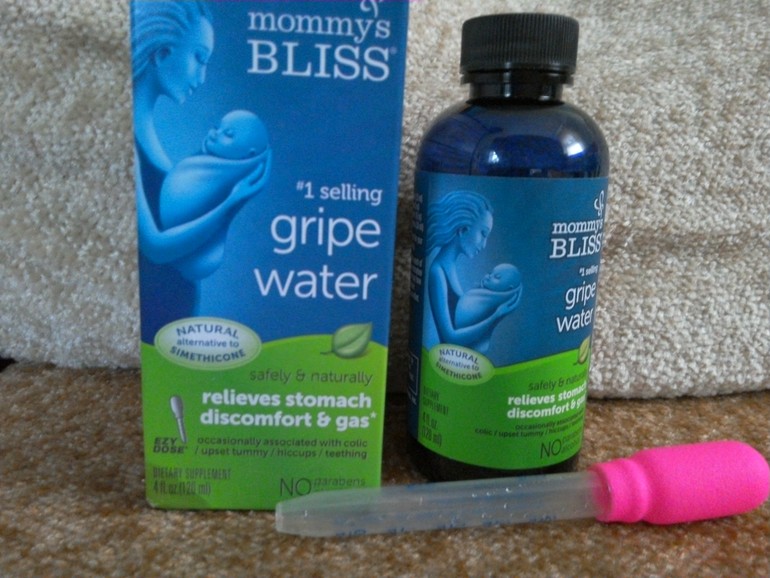 In one study, gripe water didn't improve colic symptoms, but babies who took it had more vomiting and constipation.
In one study, gripe water didn't improve colic symptoms, but babies who took it had more vomiting and constipation.
Is gripe water safe?
It's hard to say. Some experts warn against using gripe water (and giving your baby any herbal teas or remedies) because it's impossible to know what strength, dosage, and quality of herbs are in these products.
According to the National Capital Poison Center, children have developed seizures and infections from herbal teas and remedies, lead poisoning and mercury poisoning from traditional remedies, and liver damage from dietary supplements. Herbal remedies could also cause an allergic reaction.
In the past few decades, major gripe water brands in the U.S. have been recalled for being contaminated with a parasite that causes intestinal infections, and for containing an undissolved ingredient.
That said, it's unlikely that a gripe water sold in the U.S. would hurt your baby. If you want to try gripe water, talk to your baby's doctor first.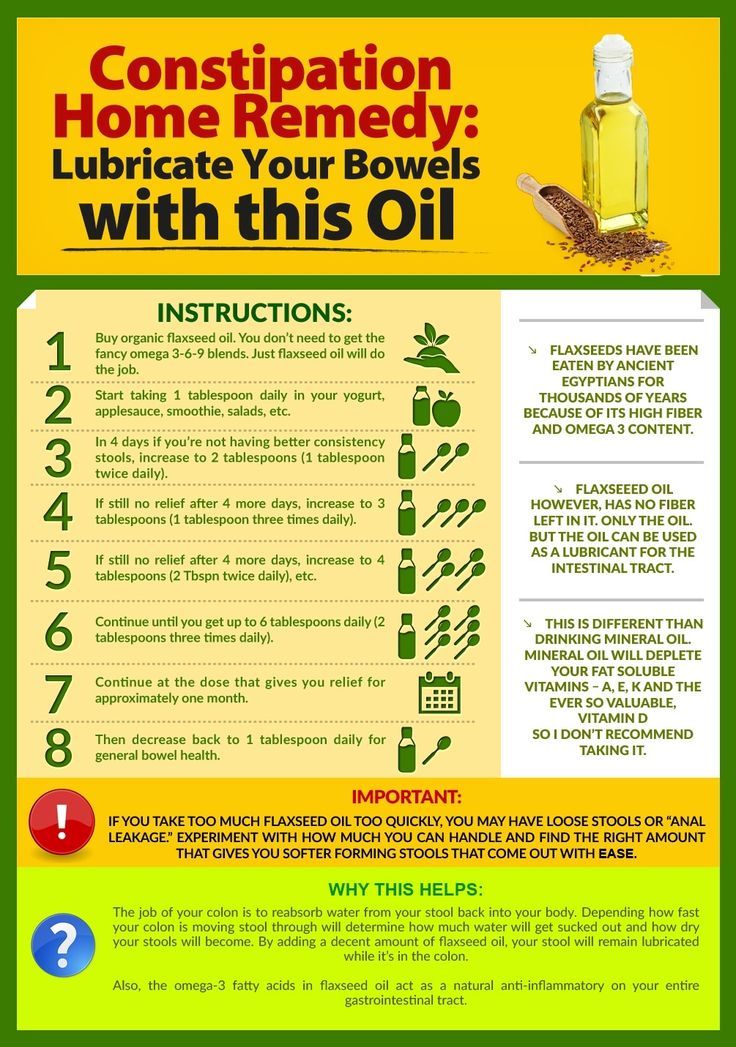
Alternatives to gripe water
If you have an especially fussy baby, a good place to start is with a visit to your doctor. An exam can rule out possible causes of colic, such as allergies or intestinal problems.
Colic is one infant ailment that doesn't have a quick fix or simple solutions – though it usually lessens with time and wanes by the time babies are 4 months old. Here are some things to try:
- Anti-gas drops (simethicone). These haven't been proven to help with colic, but are commonly used to relieve gas pain in babies.
- Probiotics containing the good bacteria Lactobacillus reuteri can help reduce the symptoms of colic in breastfed babies.
- If you breastfeed, temporarily avoiding allergenic foods like dairy, eggs, peanuts, tree nuts, fish, soy, and wheat may help improve your baby's colic.
- If you formula-feed, there's some evidence that switching to a hydrolyzed formula can relieve colic.
- Baby bottles designed to minimize air bubbles (often marketed as having "internal ventilation systems") can potentially reduce gassiness and therefore decrease the symptoms of colic.

You can also try comfort measures. Rocking or swaddling, baby wearing, and loud white noise from your dryer or vacuum can be soothing to a fussy baby. Check out our video on soothing a colicky baby for more tips.
How to drink water for constipation
Table of contents
- Why does constipation occur?
- How does water work for constipation?
- Why should you use water to treat constipation?
- What kind of water to drink for constipation?
- When should mineral water be avoided for constipation?
- Constipation prevention
- Conclusion
Disclaimer
Please note that all information posted on the site Prowellness is provided for informational purposes only and is not a personal program, a direct recommendation for action, or medical advice. Do not use these materials for diagnosis, treatment, or any medical procedure. Consult your physician before using any technique or using any product.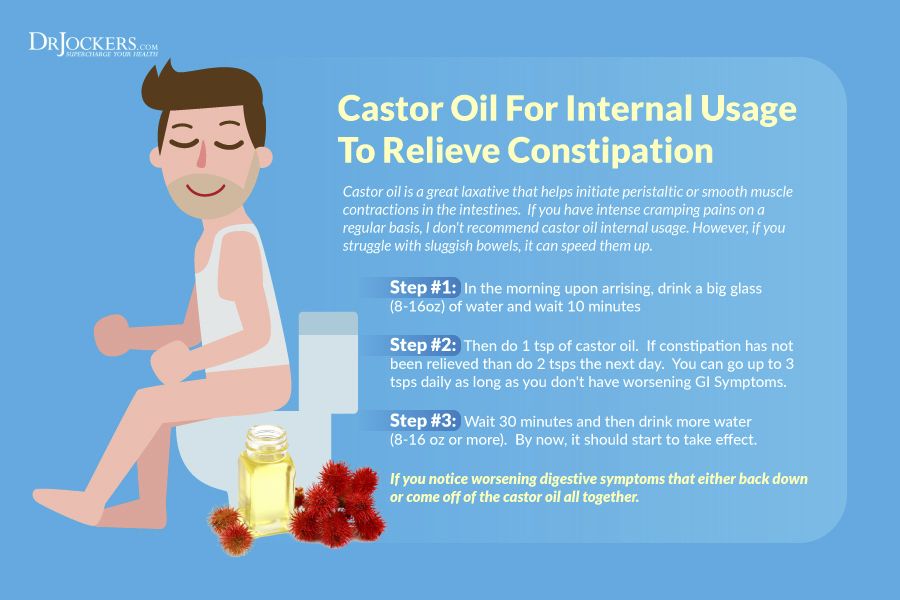 This site is not a specialized medical portal and does not replace the professional advice of a specialist. The Site Owner is not liable to any party who has suffered indirect or direct damage as a result of misuse of materials posted on this resource.
This site is not a specialized medical portal and does not replace the professional advice of a specialist. The Site Owner is not liable to any party who has suffered indirect or direct damage as a result of misuse of materials posted on this resource.
How to drink water for constipation
Drinking plenty of water for constipation helps to quickly and safely normalize the stool. Often it is more effective than drugs from a pharmacy. How much and how to drink water for constipation in order to achieve a positive effect?
What condition can be called constipation?
Constipation is a condition in which a person cannot empty the intestines for more than 1.5-2 days. Often this is accompanied by bloating, flatulence, pain. In this situation, the main thing is to free the intestines from stagnant feces.
Why does constipation occur?
The impossibility of the natural process of defecation occurs for the following reasons:
- Abuse of semi-finished products, fast food.
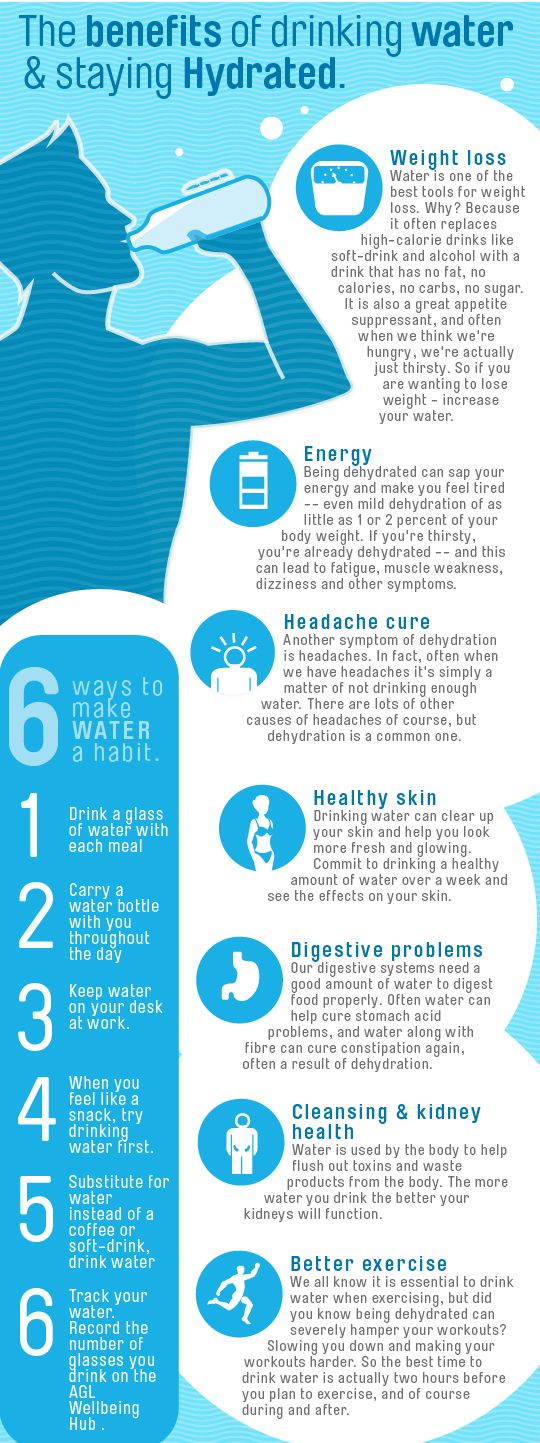
- The habit of snacking on junk food.
- Insufficient drinking.
- Insufficient intake of high fiber foods.
- Living in a situation of constant stress.
- Excessive use of enemas or laxatives.
- The period of bearing a child.
How does water work for constipation?
Few people know that ordinary water can save a person from the problem of constipation. It acts on the body in the following ways:
- reduces gas formation in the intestines;
- makes feces softer;
- helps to cleanse the walls of the large intestine;
- eliminates pain;
- activates peristalsis;
- fights pathogens.
Why use water to treat constipation?
Water has several significant benefits:
- No cash outlay.
- Indicated for use by everyone, even babies.
- Not addictive.
- Gets rid of side effects.
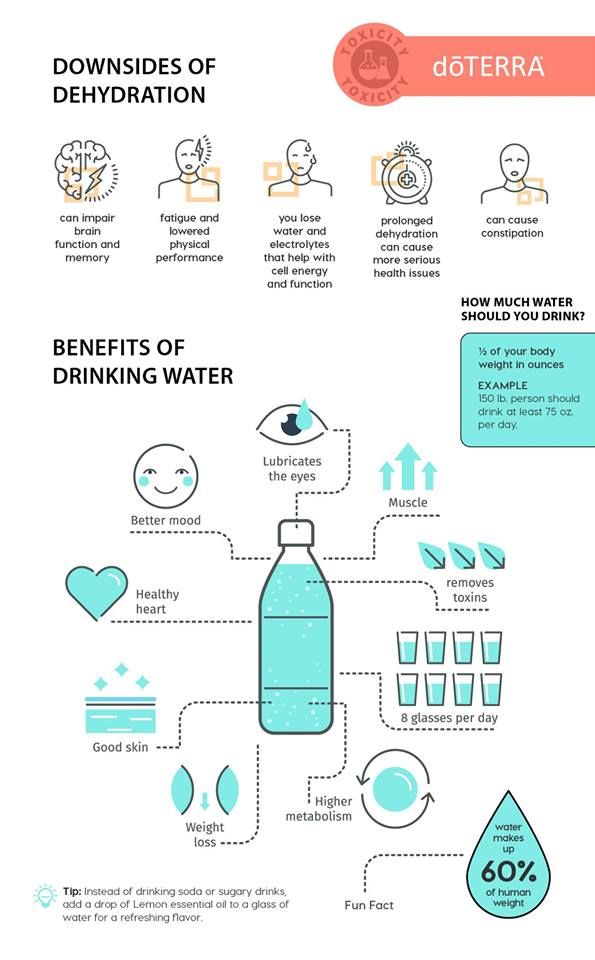
- Effective.
What kind of water to drink for constipation?
If a person suffers from constipation, then he should start drinking ordinary water without gas at room temperature. Mineral water is also allowed. It is useful for the following reasons:
- Sodium relieves intestinal inflammation.
- Magnesium reduces pain and fights mucus in the intestines.
- Bicarbonates act on feces, softening them.
- Chlorine helps to absorb enough liquid into the intestines.
- Sulfates reduce the absorption of harmful substances into the intestinal wall.
When should mineral water be avoided for constipation?
Mineral water should be preferred to ordinary water without gas with the following symptoms:
- Nausea, vomiting.
- Pain in the intestines of unknown origin.
- Presence of internal bleeding.
- Neoplasms in the intestines of various nature.
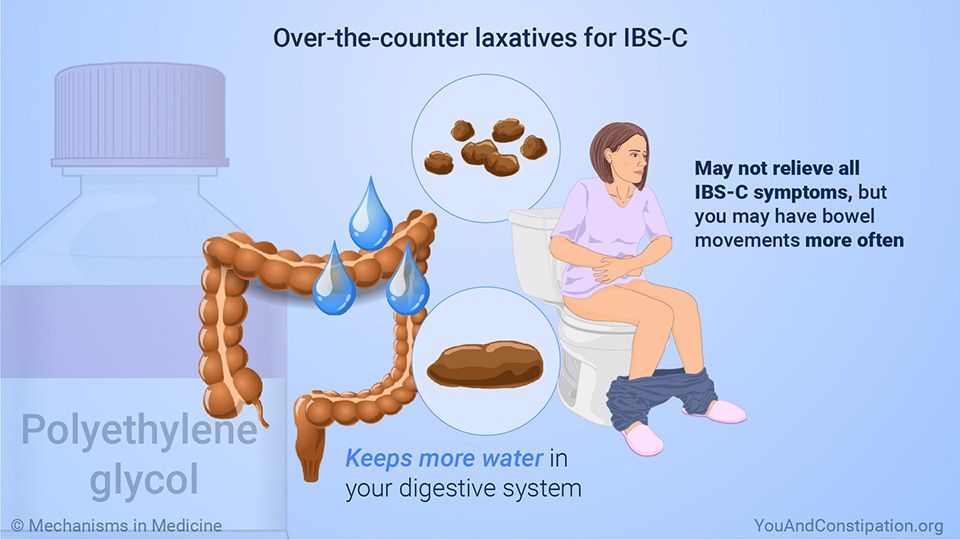
- Viral and other infections in the digestive system.
- Ulcerative processes affecting the intestines.
- Inflammatory diseases of the kidneys in a severe stage.
- Acute renal failure.
- High blood pressure.
Prevention of constipation
In order not to suffer from this condition, it is worth taking the following preventive measures:
- Follow a healthy diet and diet.
- Refuse to overeat at night.
- Eat more foods that are rich in dietary fiber (seeds, nuts, bran, vegetables).
- Maintain an active lifestyle.
- Do not suppress the urge to defecate.
- Control stressful situations and avoid nervous tension.
Conclusion
For the normal maintenance of the body's work, it is necessary to carry out an act of defecation every day. If it was not there for more than 1-2 days, then measures should be taken to eliminate constipation.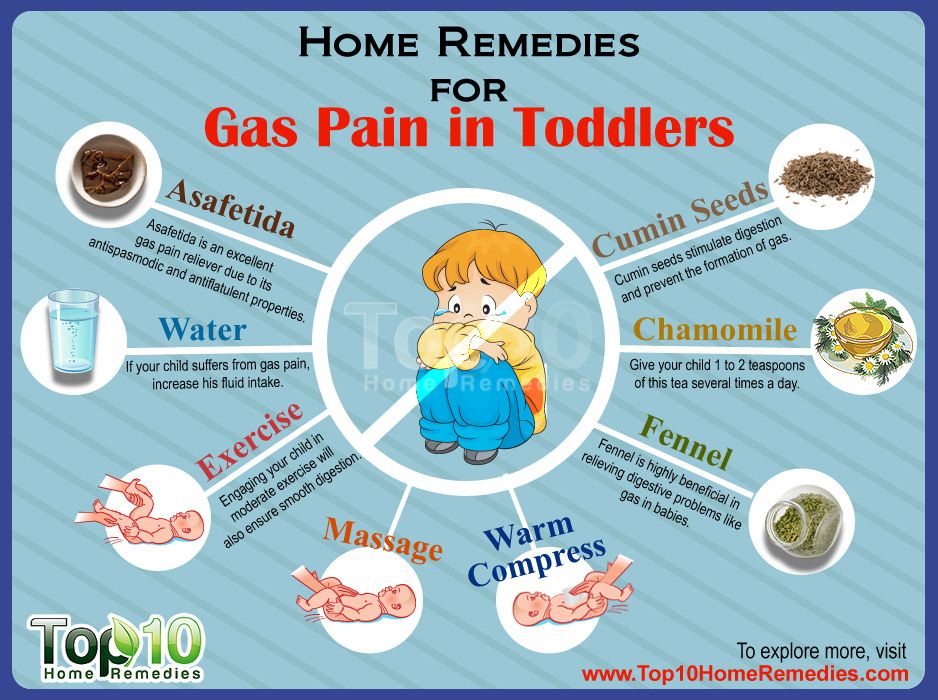 Drinking water is one of the most effective remedies on their list.
Drinking water is one of the most effective remedies on their list.
Disclaimer
Please note that all information posted on the site Prowellness is provided for informational purposes only and is not a personal program, a direct recommendation for action, or medical advice. Do not use these materials for diagnosis, treatment, or any medical procedure. Consult your physician before using any technique or using any product. This site is not a specialized medical portal and does not replace the professional advice of a specialist. The Site Owner is not liable to any party who has suffered indirect or direct damage as a result of misuse of materials posted on this resource.
Expert: Yuliya Soboleva Entrepreneur, mother and consultant in the field of beauty and skin care
Reviewer: Ekaterina Vorobieva Adept of a healthy and active lifestyle
The role of magnesium-containing mineral waters in the treatment of chronic functional disorders of gastrointestinal motility | partners
| Chronic functional constipation is an actual problem in developed countries. |
Key words / keywords: Gastroenterology, Gastrointestinal tract, Constipation, Magnesium, Minerals, Mineral waters, Intestinal motility, Functional diseases of the gastrointestinal tract, Functional constipation, Gastroenterology, Gastrointestinal tracts, Constipations, Magnesium, Minerals, Mineral waters
Artem Shevlyakov
Currently, the problem of functional bowel diseases and chronic constipation in the adult population is becoming increasingly important. Chronic constipation leads to a decrease in the quality of life of patients on the HR-QOL scale [1], and it is believed that they lead to the loss of 13.7 million work days annually in the USA alone [2].
Constipation is commonly referred to as chronic (lasting more than 48 hours) delay in bowel movements or defecation. Functional constipation is called if it is not associated with known genetic or structural pathologies of the intestine [3]. According to the Rome criteria, revision IV, the diagnosis of functional constipation requires at least two of the following criteria to be met [4]:
- less than 3 bowel movements per week;
- separation of high-density feces;
- lack of sensation of complete emptying of the intestine after defecation;
- the presence of a feeling of "blocking" the contents in the rectum during attempts;
- the need for strong attempts;
- the need for digital removal of contents from the rectum, finger support of the pelvic floor, etc.
According to a meta-analysis published in 2011, the incidence of chronic idiopathic constipation worldwide is 14% [5]. At the same time, the data obtained by the authors of the analysis indicate a trend towards an increase in the incidence of constipation over time. It should be noted that in some publications on the incidence of chronic constipation, higher rates are given: for example, in residents of developed countries, it can reach and even exceed 25%, regardless of the diagnostic criteria used [6–8].
At the same time, the data obtained by the authors of the analysis indicate a trend towards an increase in the incidence of constipation over time. It should be noted that in some publications on the incidence of chronic constipation, higher rates are given: for example, in residents of developed countries, it can reach and even exceed 25%, regardless of the diagnostic criteria used [6–8].
The etiology of functional constipation is complex and is influenced by many risk factors, including dietary habits, sedentary lifestyle, bad habits, and comorbidities [9]. Given the multifactorial nature of the disease, its growing prevalence is not surprising. Since the simultaneous elimination of all risk factors is impossible, it is necessary to have a complex effect, eliminating the symptoms and, in parallel, laying the foundations for a long-term effect at the organism level.
Magnesium preparations have long been successfully used as laxatives. Magnesium ions create a hyperosmolar environment in the intestinal lumen, which contributes to fluid retention and softening of the stool.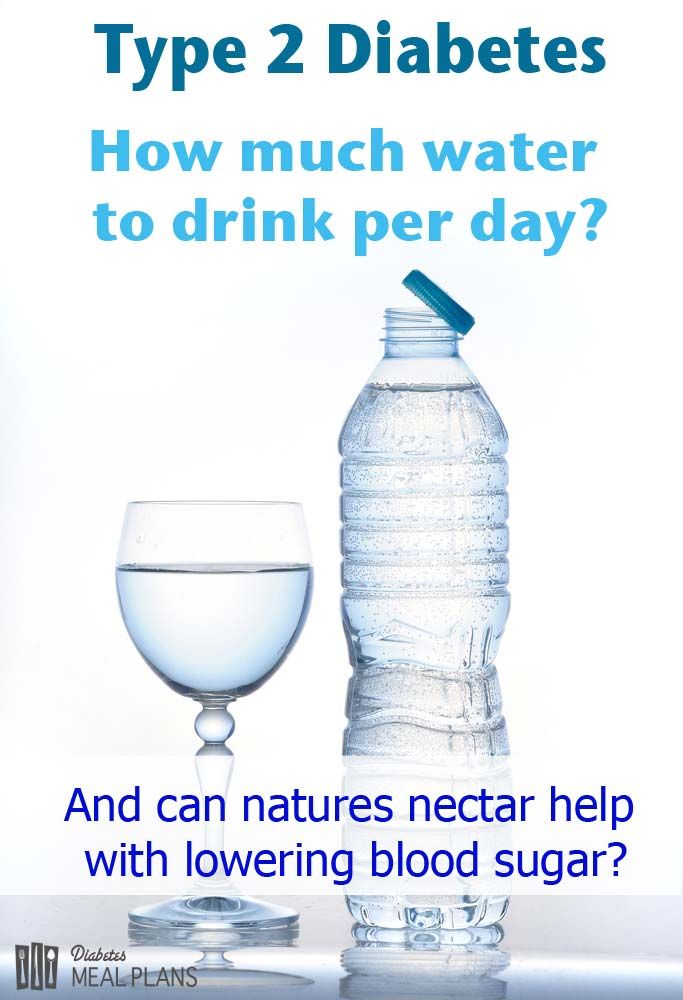 Thus, magnesium and its derivatives can be classified as classical saline osmotic laxatives [10, 11]. In addition, magnesium is involved in many enzymatic reactions, promoting the metabolism of proteins and carbohydrates, and also stimulates contractions of the smooth muscles of the internal organs, which facilitates peristalsis [12].
Thus, magnesium and its derivatives can be classified as classical saline osmotic laxatives [10, 11]. In addition, magnesium is involved in many enzymatic reactions, promoting the metabolism of proteins and carbohydrates, and also stimulates contractions of the smooth muscles of the internal organs, which facilitates peristalsis [12].
To provide a long-term therapeutic effect, the dosage form prescribed to patients with chronic constipation should maximize compliance. In this case, the most convenient is the use of mineral waters with a high content of magnesium ions. Compared to existing oral magnesium sulfate powders, they do not require additional preparation before use and provide a more stable dose of magnesium on a consistent basis, resulting in a milder and more predictable effect.
The use of high-mineralized magnesium mineral waters (for example, Donat Mg water) is proposed for the treatment of chronic constipation at the level of clinical recommendations [12].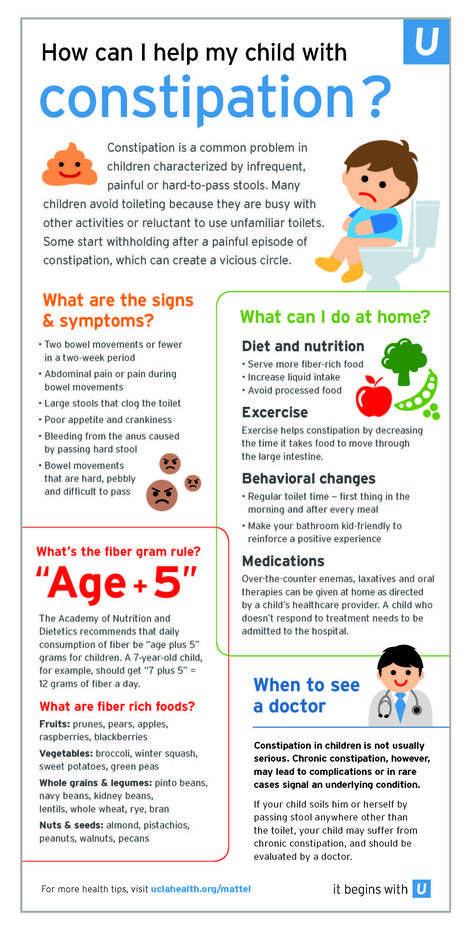 For the most pronounced therapeutic effect, it is recommended to take water on an empty stomach, after cooling it to 15-20 degrees Celsius, which contributes to a reflex increase in intestinal motility. In addition, the regular intake of such mineral water contributes to the restoration of intestinal microflora, the normalization of the body's immune systems, and the repair of the intestinal epithelium. A more detailed algorithm was proposed by M.A. Kruchinina et al. [13] and involves taking mineral water twice a day 15-20 minutes before meals, at a dose of 200-300 ml before breakfast and 100-200 ml before lunch.
For the most pronounced therapeutic effect, it is recommended to take water on an empty stomach, after cooling it to 15-20 degrees Celsius, which contributes to a reflex increase in intestinal motility. In addition, the regular intake of such mineral water contributes to the restoration of intestinal microflora, the normalization of the body's immune systems, and the repair of the intestinal epithelium. A more detailed algorithm was proposed by M.A. Kruchinina et al. [13] and involves taking mineral water twice a day 15-20 minutes before meals, at a dose of 200-300 ml before breakfast and 100-200 ml before lunch.
Note that the use of water at a higher temperature is also possible, but leads to a slightly different effect and, as a result, has a different set of indications. Warm mineral water has an analgesic and antispasmodic effect, increases the outflow of bile. The use of heated mineral water is indicated for diseases of the biliary tract, postcholecystectomy syndrome. In a warm form, calcium-magnesium-sodium waters can also be prescribed for chronic pancreatitis during remission [12].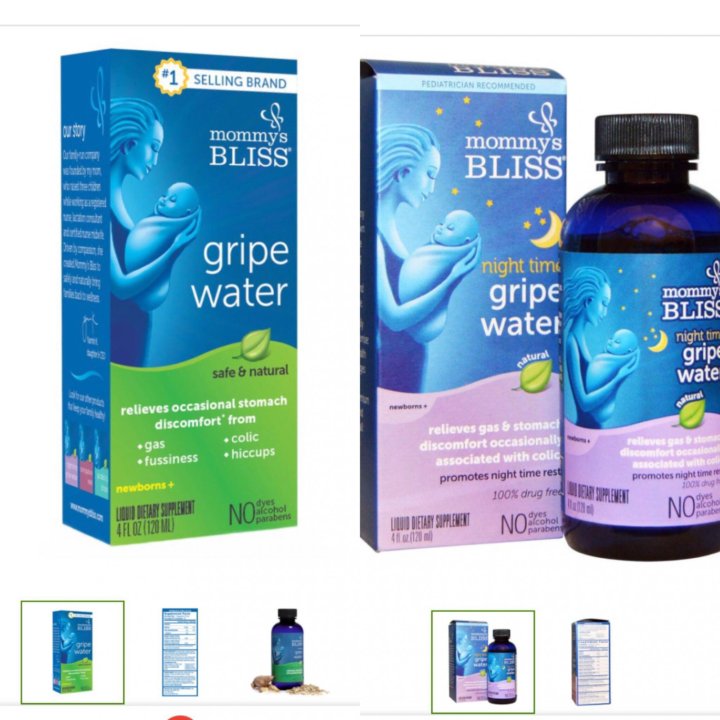
"Donat Mg" is a highly mineralized carbonic siliceous sulphate-hydrocarbonate sodium-magnesium medicinal mineral water obtained from a spring in the territory of the balneo-climatic resort Rogaška Slatina in Slovenia. A large amount of bicarbonate increases the biological availability of water and its components. Due to this, magnesium ions in the composition of water can have not only a local, but also a systemic effect, contributing to long-term treatment [14].
As practice shows, mineral waters with a predominance of Mg 2+ can be successfully used to treat chronic constipation in the long term. So, L.Kh. Indeikina et al. demonstrated that regular use of Donat Mg mineral water by patients with chronic constipation leads to a significant increase in the rate of carbolene transit, normalization of Bristol scale scores and improvement in subjective quality of life [15]. A similar result was obtained in the study by M.A. Kruchinina [13], where the authors achieved normalization of intestinal transit time and normalization of stool when prescribing Donat Mg mineral water.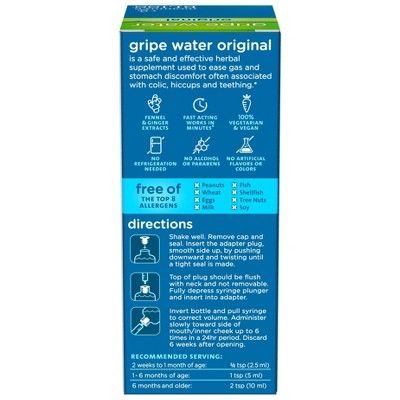
It should be noted, however, that only water with a certain ratio of components and a sufficient level of magnesium can achieve a pronounced therapeutic effect. A randomized, double-blind study in Berlin showed the advantage of Donat Mg mineral water over lower mineral water obtained from another source in Rogaška Slatina [14]. After six weeks of observation in the group of patients who took water "Donat Mg", the frequency of complete spontaneous bowel movements without taking any laxative was significantly increased, while in the control group this effect was not pronounced.
Thus, mineral water "Donat Mg" is a convenient tool for the long-term treatment of functional constipation in patients of the adult age group, which does not require a significant change in the patient's lifestyle. The optimal ratio of ions in its composition allows achieving a favorable effect at the local and systemic level and contributes to a more pronounced elimination of the symptoms of pathology compared to other waters containing magnesium.
Literature
- Wald A, Scarpignato C, Kamm MA et al. The burden of constipation on quality of life: results of a multinational survey. Aliment Pharmacol Ther. 2007 Jul 15;26(2):227-36.
- Sonnenberg A, Koch TR. Dis Colon Rectum. 1989 Jan;32(1):1-8.
- Minushkin O.N. Functional constipation: recommendations for diagnosis and treatment // BC. Gastroenterology. 2016. No. 11. P. 703–707.
- Parfenov A.I., Indeikina L.Kh., Belyaeva A.A. etc. Chronic constipation. Guidelines // GBUZ Mosk. wedge. scientific center TsNIIG. — M.: Prima Print, 2016. — 52 p.
- Suares NC, Ford AC. Prevalence of, and risk factors for, chronic idiopathic constipation in the community: systematic review and meta-analysis. Am J Gastroenterol. 2011 Sep;106(9):1582-91; quiz 1581, 1592.
- Tamura A, Tomita T, Oshima T et al. Prevalence and Self-recognition of Chronic Constipation: Results of an Internet Survey.
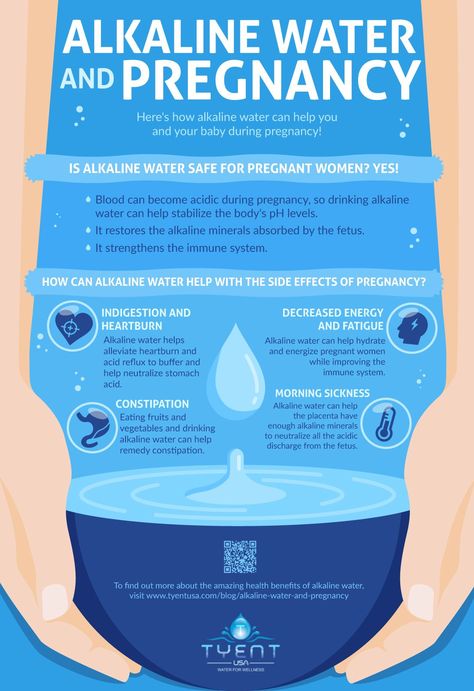
- Talley NJ, Fleming KC, Evans JM et al. Constipation in an elderly community: a study of prevalence and potential risk factors. Am J Gastroenterol. 1996 Jan;91(1):19-25.
- Pare P, Ferrazzi S, Thompson WG et al. An epidemiological survey of constipation in Canada: definitions, rates, demographics, and predictors of health care seeking. Am J Gastroenterol. 2001 Nov;96(11):3130-7.
- Bothe G, Coh A, Auinger A. Efficacy and safety of a natural mineral water rich in magnesium and sulphate for bowel function: a double-blind, randomized, placebo-controlled study. Eur J Nutr. 2017 Mar;56(2):491-499.
- Portalatin M, Winstead N. Medical management of constipation. Clin Colon Rectal Surg. Mar 2012;25(1):12-9.
- Müller-Lissner S. The pathophysiology, diagnosis, and treatment of constipation. Dtsch Arztebl Int. 2009 Jun;106(25):424-31; quiz 431-2.
- Drinking mineral waters in treatment-and-prophylactic and rehabilitation programs.

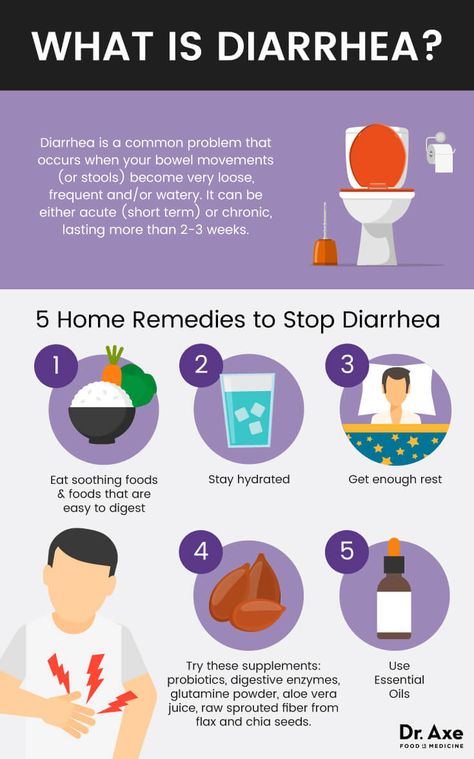 We considered the possibility of a complex effect and treatment of chronic constipation with the help of mineral water therapy with a high content of magnesium.
We considered the possibility of a complex effect and treatment of chronic constipation with the help of mineral water therapy with a high content of magnesium. 